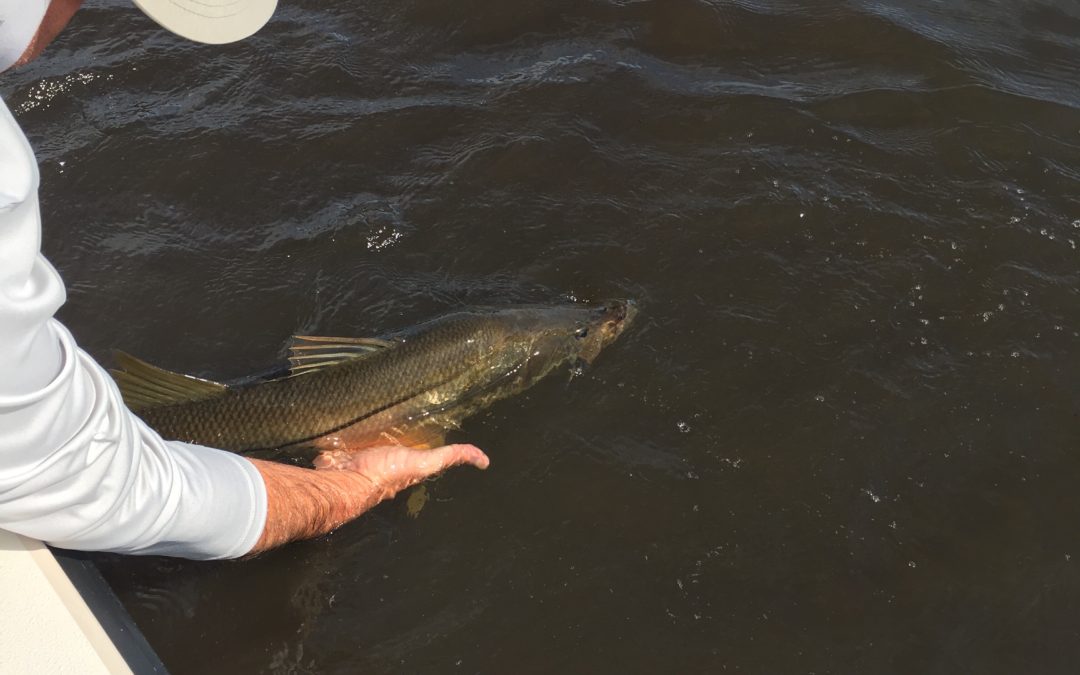Summer is prime time for snook. They’re like me, they like it when it’s 96 in the shade. They can be fished for in the winter, we just have to treat them with a little more respect. First and foremost, it is important to handle them with care. They like water temperatures in the 80’s. In fact, if the water temperature gets below 70 they get very lethargic and if it drops below 60 they can die. This is why it is so important to be careful when they’re vulnerable. I try to keep them out of the water as little as possible and keep them wet. Keep in mind, every second that we have have them up in the air is just like someone keeping our head under the water for the same amount of time. If they’re lethargic, it is tougher for them to recover. Typically, the smaller males aren’t as vulnerable as the older females.
When the wind starts to blow out of the north cooling off the shallow water flats adjacent to mangroves that they like to call home they transition or move to find warmer or more stable water temperatures. Here, in southwest Florida they migrate toward coastal river systems, canals, and backcountry creeks. In many cases, they’ll push as far back as they can manage. Around Charlotte Harbor, the Peace and Myakka river systems are prime examples. Also, the many smaller creek systems along the eastern and western border of the harbor as well as throughout Gasparilla Sound and Bull and Turtle Bay provide safe haven during the colder months.
In addition, the snook’s diet changes quite a bit under these circumstances. The abundant scaled sardine or pilchard that is so abundant during the warmer months also move on to the more stable water temperatures offshore in the Gulf. As a result, snook are left to scavenge for the smaller local resident baitfish like killifish and shrimp and crabs.
As a result, I’ll begin throwing smaller patterns to match the available prey species. Clousers, kwans, bend backs, and seaducers are some of my favorites. Smaller hooks like a # 1 or even a #2 are also good and slow down the strip or retreive. When it does get cold they’ll move a little slower kind of like being lazy. However, they do need to eat so they’ll take a fly. Too, keep a tight drag and get them to the skiff quick. try not to allow them to work any harder than they have too.
In short, they’re a great gamefish but need to be treated with some respect when they’re trying to maintain their body warmth.


Recent Comments